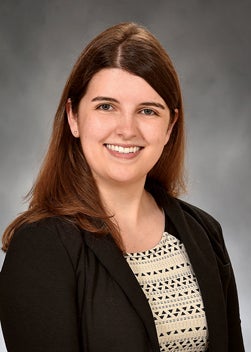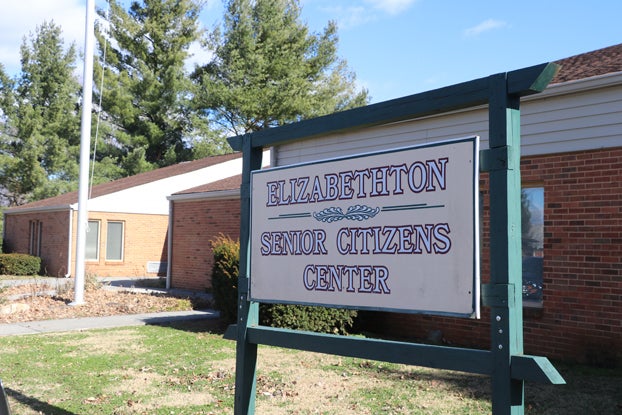ETSU study aims to evaluate pharmacist-prescribed contraception as means of filling a gap in regional birth control access
Published 3:27 pm Wednesday, July 7, 2021
|
Getting your Trinity Audio player ready...
|
JOHNSON CITY — Dr. KariLynn Dowling-McClay, an assistant professor of Pharmacy Practice at East Tennessee State University Bill Gatton College of Pharmacy, has received an $11,998 ETSU Research Development Committee (RDC) Grant to study pharmacist-prescribed contraception (PPC) as a means of filling the gap in regional access to birth control in Appalachia and the southern U.S.
“This is a nationwide issue with almost half of all pregnancies in the U.S. being unplanned or ‘surprise’ pregnancies each year,” said Dr. Dowling-McClay. “If a pregnancy occurs when it is not intended, there are greater risks to mom, baby and family. Consistent access to effective birth control methods is the best way to prevent unplanned pregnancies.”
The need for consistency faces additional problems in Appalachia, according to Dowling-McClay, including: distance required to travel to clinics, lack of transportation, lack of health insurance, misinformation about reproductive health, low health literacy, distrust of medical providers, and cultural beliefs — all of which have been found to decrease access to birth control. While pointing out that the list is non-exhaustive, Dowling-McClay believes there is a way to curtail this access gap using PPC.
“Pharmacist-prescribed contraception is a health care innovation that might be able to fill a gap in access to birth control for women who need it most,” she added. “It is also an opportunity for pharmacists to fulfill their duty to preserving and improving the public’s health. We want to find out if this service is feasible and wanted in the Appalachian region from the perspectives of women, pharmacists and other medical providers.”
PPCs are provided in a retail pharmacy setting. For patients, it means sitting down with a pharmacist for a brief evaluation and walking out with a prescription, written and filled by the pharmacist, for birth control medication.
“In states that allow PPC, pharmacists can generally prescribe any type of birth control except for intrauterine devices and arm implants which both require medical procedures to place,” said Dowling-McClay. “Depending on what, if any, insurance coverage is available, the patient may pay for the medication and/or a consulting fee for the pharmacist’s service. This is different from the traditional model where a patient would go to their doctor’s office, often requiring an appointment weeks to months in advance, and receive a prescription for birth control which they would then take to their pharmacy to be filled.”
Potential PPC benefits include: increased access, convenience and affordability. A built-in screening process identifies women with serious medical issues who need to remain under the care of a regular physician.
Dowling-McClay chose Tennessee and Virginia as the focus of her study, as both are locations where PPC is authorized by state law but in varied ways regarding how the service can be offered. For example, Tennessee requires a collaborative practice agreement (CPA), a document signed by a pharmacist and a physician, that delegates certain tasks to the pharmacist they would otherwise not be able to do; Virginia does not have this prerequisite.
“This led to our selection of these two states as the focus of our study,” said Dr. Dowling-McClay. “We want to gain an understanding of how the two states’ differing policies may make it easier or harder for pharmacists to setup PPC services and, consequently, make it easier or harder for women to access those services.”
In Tennessee, a pharmacist must find a local prescriber willing to sign a CPA and authorize them to prescribe birth control. Virginia, however, has issued a statewide protocol authorizing pharmacists to prescribe birth control without a CPA.
“A pharmacist licensed in Virginia can do this right now with no extra paperwork or signatures required. This is why we are interested in comparing how things are currently looking for PPC in Tennessee and Virginia,” said Dowling-McClay. “As far as we know, very few pharmacies in Tennessee have started PPC programs in the three years they have been permitted. Virginia is even earlier in the process, which makes this a good time for us to identify potential challenges.”
Dr. Michael G. Smith, assistant professor with ETSU College of Public Health, and program and policy director for ETSU Center for Applied Research and Evaluation in Women’s Health (CARE Women’s Health), will work with Dr. Dowling-McClay on the PPC research.
“Difficulty accessing contraceptive counseling and contraceptive methods continues to be a barrier to empowering women, partners and families to have their reproductive experiences match their plans and desires,” added Smith. “We want to understand whether being able to access contraceptive counseling and methods in a pharmacy setting is something that people in Central Appalachia want, whether pharmacists in this region believe that the policies that allow PPC support meeting their patients’ needs, and whether traditional providers of contraceptive care support working with their pharmacist colleagues to expand care provision to pharmacies. In the long-term, we hope this research results in more people shouting, ‘yes,’ when they find out they are pregnant and fewer saying, ‘what are we going to do,’ when they find out they are pregnant.”
In addition to logistical considerations such as space, time, costs and advertising, Dr. Dowling-McClay said pharmacists must find ways to make the service financially sustainable, and pointed out that many of them may feel underprepared to participate having attended school before PPC was an option. She also noted a lack of information on the demand for PPC from women in the region, or how primary care and women’s health medical providers feel about pharmacists potentially offering this service.
“Exploring all of these factors specific to Appalachia will help us identify possible solutions that meet the needs of women in the region,” she said. “Ideally, we can expand our research into the rest of the Appalachian region or nationwide. Our findings may have implications for state policies regarding pharmacists’ scope of practice and contraception access. Long-term, we hope work started in this project will contribute to increased access to contraception, a decrease in the number of unplanned pregnancies and increased family planning.”
Learn more about Gatton College of Pharamcy at etsu.edu/pharmacy. Learn more about CARE Women’s Health at etsu.edu/cph/care-womens-health.




